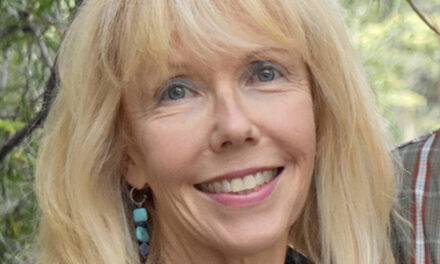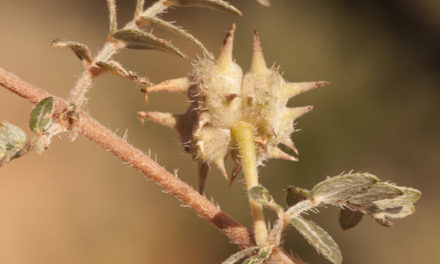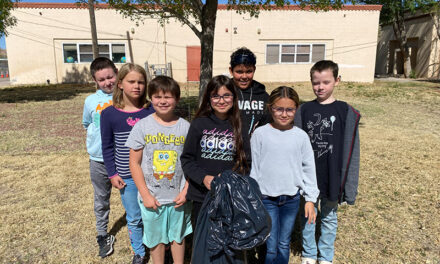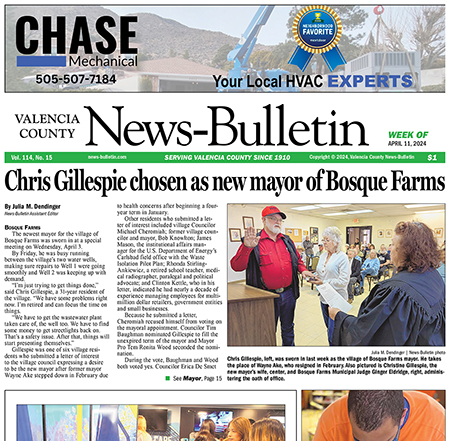
Sierra Cain
The beginning signs of fall have begun as the cooler temperatures, moisture and golden leaves arrive. Fall is a busy time for our 4-H program as we wrap up our New Mexico fair season and the end of our 4-H year.
This time is also joyous as there are so many fun activities for our youth to participate in before the winter months begin. As we prepare for the colder weather ahead, our poultry friends should also be considered so they are best equipped for cooler weather ahead.
Many of us purchased chicks during chick days in the spring and now have mature laying hens. As our days start to change, be sure you have adequate lighting in your coop. Montana State University Extension recommends a 40-watt bulb with a reflector suspended 7 feet about the floor.
If you have a larger coop, you may add more bulbs. Lighting in coops should be on for about 16 hours, with eight hours of dark each day. The extended light can help when the days are shorter so your hens will start or continue laying eggs.
Heat is another factor for keeping your birds healthy throughout the winter. Be sure coops are insulated and equipped with proper air flow. You want to keep the cold air out at night, allowing for fresh air during the day. Adding ventilation windows directly under where the roof and walls meet allow for great ventilation in the day and protection of outside predators when closed at night.
Having heat bulbs in safe areas to avoid fire, help chickens stay warm in general. Encouraging hens to lay if you have enough light during the winter months can also involve the use of fake eggs in your nesting boxes. Many hens will lay if they see others “laying” eggs. Fake eggs can be purchased at your local feed store. Easter eggs can be of great use, too.
Providing bedding and raised beds help keep chickens dry. The drier your birds can stay the warmer they will be. Having a waterproof roof and ground tremendously aid in keep your chickens from getting wet.
Thick-layered bedding of about a foot, when kept clean, also aids in heat retention. Birds will group together when cold, so be sure to have the clean and dry space for them to do so.
Keeping hens on a quality feed throughout the fall and winter months is also very important. Once hens start laying, they need to be on a complete layer feed with at least 16 percent protein and 3.25-4.5 percent calcium to produce strong, healthy eggs.
Hens also need a quality feed throughout the fall and winter months as they typically will experience their yearly molt (the shedding and growth of new feathers). The addition of an increased caloric feed source (corn, sunflower seed) for their evening feeding can help keep them warmer with colder night temps.
Lastly, access to fresh water is crucial! Try not to use plastic tubs and utilize aluminum or rubber tubs as they are less likely to split when frozen. Using two water sources allows for one source to be thawed while the other is available.
Electric heaters are also on the market to keep the water from freezing if you have access to electricity in your coop. Water should always be available and checked daily.
Keeping your chickens active during the winter months aid in feather picking and pecking. Hanging cabbage and other treats can allow for birds an activity to do, or peck at, while they are being kept safe and warm.
Program announcements
To register for an upcoming program, call the Valencia County Cooperative Extension Service at 505-565-3002. For more information, visit valenciaextension.nmsu.edu.
- 4-H Youth Open Enrollment: Now through Jan. 31, 2023. New member registration information can be found by contacting the Extension Office at 505-565-3002, or by email to Sierra Cain at [email protected]
- Ready, Set, GROW!: Free gardening classes are being offered virtually. “Landscaping with Native Plants” will be held Wednesday, Oct. 19. Registration required; visit desertblooms.nmsu.edu/grow.html
- The Haunted Barn: 7-11 p.m., Friday-Saturday, Oct. 28-29, at the Valencia County Fairgrounds. Come out to the Haunted Barn to have a local scare by 4-H and FFA members. Admission is $5 per person.
If you are an individual with a disability who requires auxiliary aid or service to participate in a program, please contact the Valencia County Cooperative Extension Service Office at 505-565-3002 two weeks in advance of the event.

Sierra Cain, guest columnist
Sierra Cain is the Valencia County 4-H/Youth Development agent for the New Mexico State University Cooperative Extension Service.















